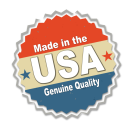- In response to industry concerns for mislabeled beef products, U.S. Agriculture Secretary Tom Vilack recently said that the “Product of the USA” label on meat products should undergo a full-scale review. Vilack maintains that he is “committed to ensuring that the ‘Product of USA’ label reflects what a plain understanding of those terms means to U.S. consumers.” In March, we reported that the Tenth Circuit dismissed lawsuits based on meat producer’s use of allegedly deceptive and misleading “Product of the USA” labels on their beef products that did not originate from cattle born and raised in the United States.
- The issue of country-of-origin beef labeling (“COOL”) continues to be a source of debate. Earlier this week, the FTC finalized a rule that is intended to tighten the use of the Made in the USA standard. The FTC said that this update would benefit small businesses who lack the resources to defend their products from foreign imitators. However, the FTC rule does not require USDA action. In response, the beef industry is demanding Congress to act swiftly.
- R-CALF, a group of USA-based cattle ranchers, has been pushing hard for reforms on COOL. On September 22, R-CALF released a poll that shows staggering support for mandatory COOL legislation by the American public. R-CALF reports that 86 percent of American voters support the American Beef Labeling Act that reinstates mandatory country of origin labeling for beef, and 90 percent of voters are concerned that foreign importers of beef can legally put a “Product of USA” sticker on a package containing beef that was born, raised, and harvested outside the United States.
- Currently, Congress is working through prospective beef labeling legislation that would require USDA oversight of COOL. The American Beef Labeling Act (S.2716) is a bipartisan bill that was introduced in the Senate in 2021; however, the bill has languished without action in the U.S. Senate Agriculture Committee. In March 2022, a bipartisan companion bill was introduced in the U.S. House (H.R.7291), which has also seen little to no progress in the House Agriculture Committee. Keller and Heckman will continue to monitor these legislative developments and USDA action.
For more Food and Drug Law news, click here to visit the National Law Review.




 Despite the existence of long-standing U.S. laws strongly favoring the purchase of domestic products for use by governmental entities, in governmental programs and particularly the fulfillment of
Despite the existence of long-standing U.S. laws strongly favoring the purchase of domestic products for use by governmental entities, in governmental programs and particularly the fulfillment of  Despite the existence of long-standing U.S. laws strongly favoring the purchase of domestic products for use by governmental entities, in governmental programs and particularly the fulfillment of
Despite the existence of long-standing U.S. laws strongly favoring the purchase of domestic products for use by governmental entities, in governmental programs and particularly the fulfillment of